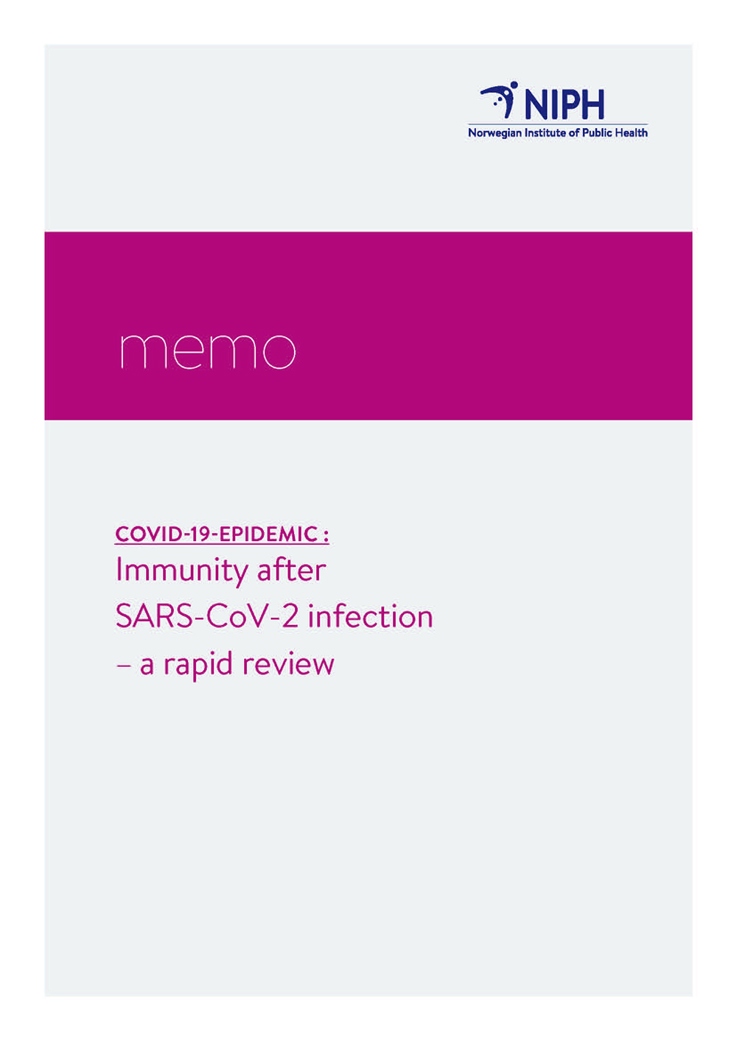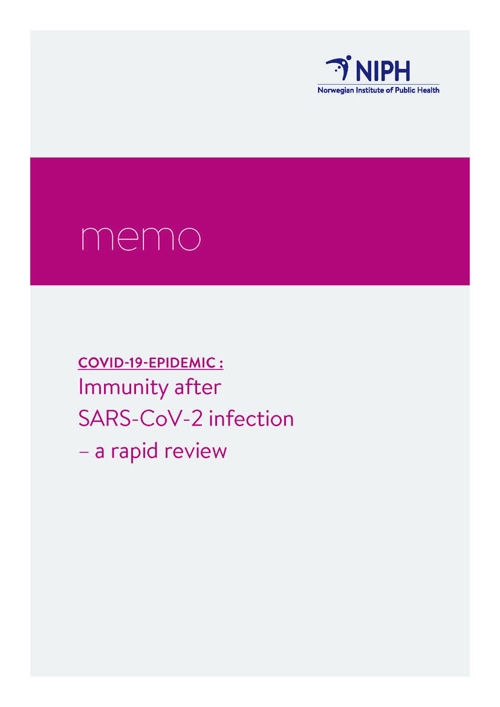Immunity after SARS-CoV-2 infection - a rapid review
Note
|Published
This content is archived and will not be updated.

The findings in this memo are based on rapid searches in PubMed, EMBASE and two pre-print databases. One researcher went through all search records, selected and summarised the findings. In the current situation, there is an urgent need for identifying the most important evidence quickly. Hence, we opted for this rapid approach despite an inherent risk of overlooking key evidence or making misguided judgements.
Download
Key message
This version is outdated. The new version can be found here: Immunity after SARS-CoV-2 infection, 1st update – a rapid review
The findings in this memo are based on rapid searches in PubMed, EMBASE and two pre-print databases. One researcher went through all search records, selected and summarised the findings. In the current situation, there is an urgent need for identifying the most important evidence quickly. Hence, we opted for this rapid approach despite an inherent risk of overlooking key evidence or making misguided judgements.
We identified 16 original papers from the database search and by manual searching of reference lists that were relevant to our research questions.
Does primary infection with SARS CoV-2 result in immunity, and if so, how long does the immunity last?
We found very limited evidence on immunity after infection with SARS-CoV-2. One study on rhesus macaque monkeys suggests that primary infection with SARS-CoV-2 may protect against reinfection. The study was small and did not provide any information on the duration of immunity. Two studies showed sustainable IgG levels one to two years after SARS-CoV infection, but it is uncertain whether this finding is generalisable to SARS-CoV-2, and also whether sustained levels of antibodies provide full protection against reinfection.
How quickly does one develop SARS-CoV-2 specific antibodies, and what is the proportion of patients presenting seroconversion?
Seroconversion rate and timing varied across studies and between IgM and IgG antibodies. We believe this variation is largely is due to differences in the test sensitivity. A problem that probably will dissolve when larger studies using validated tests are published.
Does the rate of seroconversion and/or the timing depend on the severity of SARS-CoV-2 infection?
Seroconversion rate and timing do not appear to differ between patients with mild to severe/critical COVID 19 infection. Studies of asymptomatic cases are however lacking.
Can antibodies be transmitted from women infected with SARS-CoV-2 to the fetus via placenta and thus confer immunity in the newborn?
Results from one small study suggest that antibodies from SARS-CoV-2 infected women may be transmitted to the foetus during pregnancy, but the evidence is uncertain.

